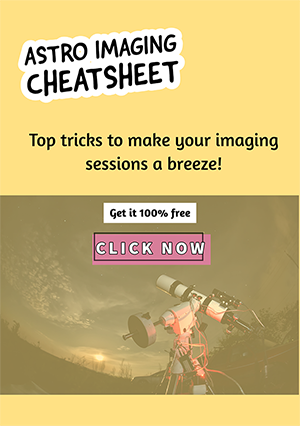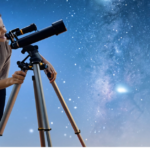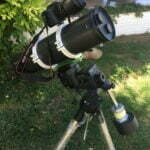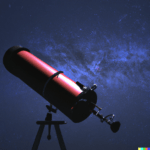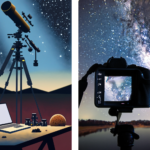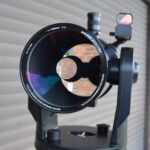In my experience throughout my journey as an astrophotographer, I have sought to improve the quality and appearance of my images. I’m betting that this is something you’re keen on doing too. It seems to me that it is human nature that even if others believe our astrophotos are amazingly good, we may not think so. My message on this page is to be happy with your progress until now but always strive to be better. I will suggest 5 tips that will enable you to be a better Astrophotographer, whatever your current level. So if this interests you, let’s make a start…
There are several ways to be a better astrophotographer. First, image as often as possible. Second, master your equipment before upgrading. Third, learn as much as you can about the technical stuff. Fourth, keep experimenting and trying new things. Fifth, buy the best equipment you can afford.
Having been on my own astrophotography journey for several years now, when I look back I am constantly amazed at the progress I have made in a short time! You can make incredible progress too and I’ll show you how, by following my 5 tips to be a better astrophotographer with the least amount of stress and without wasting too much time or money. Sound good? Let’s get to it!
Tip 1: Image as Often as Possible
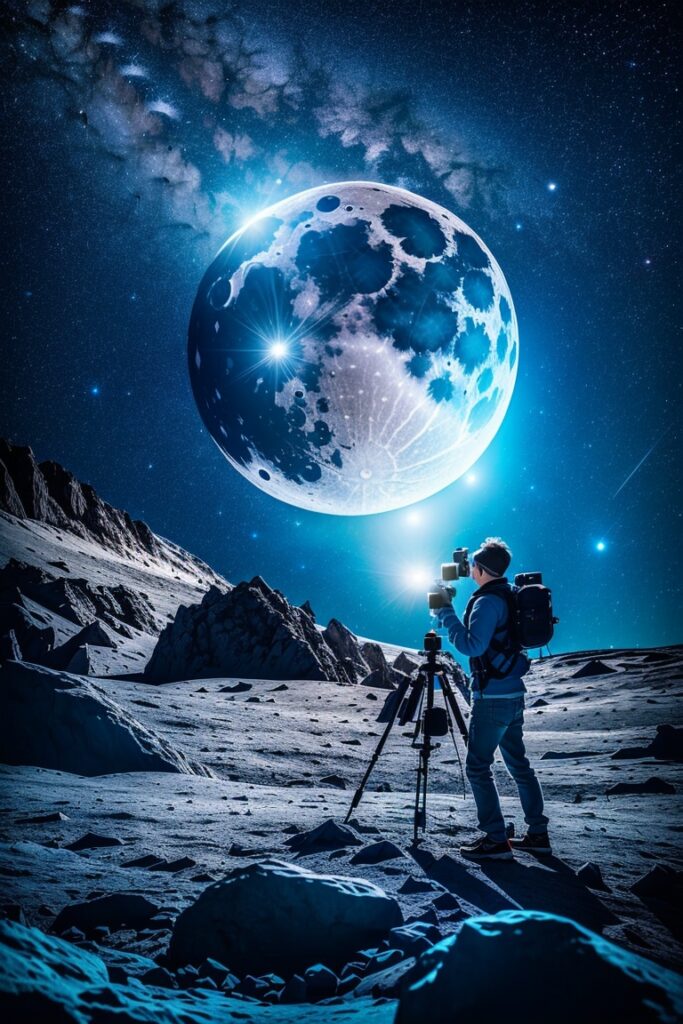
Before talking about why this is a good idea, let’s address the elephant in the room. Your local weather. If you live somewhere like the UK, you may not be able to image very often so this makes it even more important to stay in practice and improve your skills at every clear sky opportunity. Those who live in warmer and sunny places, (like me!), can image almost every night at certain times of the year. Don’t waste an evening because each night is a learning experience and will advance your knowledge and experience as an astrophotographer as you practice or face problems.
Tip 2: Master your Equipment Before Upgrading
It is tempting to think that better equipment will lead to better results and that is not necessarily true. At the start, I needed to use a basic setup because I didn’t know much about photography and the settings I needed for my camera. Staying with the equipment I had before moving forward was the best idea and enabled me to learn gradually.
In the beginning, it is possible to do astrophotography without any tracking, but to improve you’ll want to upgrade to a mount that can track the stars.
It is usually pretty obvious when you need to upgrade your equipment. As an astrophotographer, you will eventually outgrow your equipment. The next step in your development may be to upgrade your telescope, camera, lens, or whatever it is you need.
Make sure there is a good reason to upgrade and that you do the research necessary to understand what your next step should be before you go ahead and buy something. You don’t want to regret the money you spend because this is not a cheap hobby!
Tip 3: Learn the Technical Stuff an Astrophotographer Needs to Know
An astrophotographer needs quite a lot of technical knowledge and this includes general physics, mathematics, and the basics of photography. You also need to learn about astronomy and the nature of the objects you are trying to capture. This will take time to learn and this is why the previous point underlined the need to wait and learn before upgrading your kit.
Along with the technical issues you will face as you strive to take pictures of the night sky and manage your equipment, you’ll also need to improve your ability to process your images and learn the software that you will need to use, such as Photoshop or Pixinsight. You’ll need to be proficient with a computer and a laptop is probably going to be an asset later.
One of the most helpful things I’ve found to help me get better at astrophotography is watching the many YouTube videos produced by experienced astrophotographers such as Trevor Jones and others. These videos are so helpful for problem-solving and help you to try new things.
Another very helpful source of information and help that I have used is the Cloudy Nights Forum. I’ve posted questions and also helped others with problems that I’ve faced and solved before. The community is very friendly and so helpful.
Tip 4: Keep Experimenting and trying New Things
Astrophotographers need to be practical and hands-on. When you do face issues or questions, as you will, often the only way to figure things out is to experiment. If you wonder “How long should my exposure be for this target?” or “How does my light pollution affect the exposure length of my astrophotos?” no one can give you an exact answer because your situation is unique. Your location, your conditions, your equipment, and your experience are all unique to you. Running tests and experimenting is often the best way to understand how these things work and what you should do.
It’s always better to satisfy yourself that something is true or not, rather than just taking someone else’s word for it. Just because something works for another person, it may not work for you. Test and test again!
Tip 5: Buy the Best Equipment you can Afford
After following the last tip your experiments may reveal an important fact or idea and this can result in your desire to try something new. Guiding was an example of this for me. I wanted to extend the length of my exposures so that I could get more detail in my deep-sky images. This required an upgrade to my equipment, a guide scope and camera, and new software plus some learning to start guiding properly. I got the wrong camera and it didn’t work so I sent it back and bought a better one, the SVbony SV301 camera and this did the job.
Sometimes getting a high-quality product will mean the difference between progressing faster because you will enjoy using that piece of equipment and it should be more reliable and easier to use. Also, you will not outgrow that equipment as quickly and therefore despite being more expensive your new equipment may prove to be better value in the long run.
It’s better for your progress to wait until you can afford to buy a better camera or telescope or lens or whatever you need rather than jumping to get something cheaper. Cheap equipment can let you down and disappoint you and even might set you back in your efforts to improve as an astrophotographer.
Finally
If you follow the five tips I’ve given you above, I’m sure your progress as an astrophotographer will be incredible. You can’t cut corners in this hobby and everyone will face problems. Make sure you are giving yourself the best shot at improving. Everyone has their own pace, you don’t have to become a professional astrophotographer, so stick with it and enjoy every moment!

